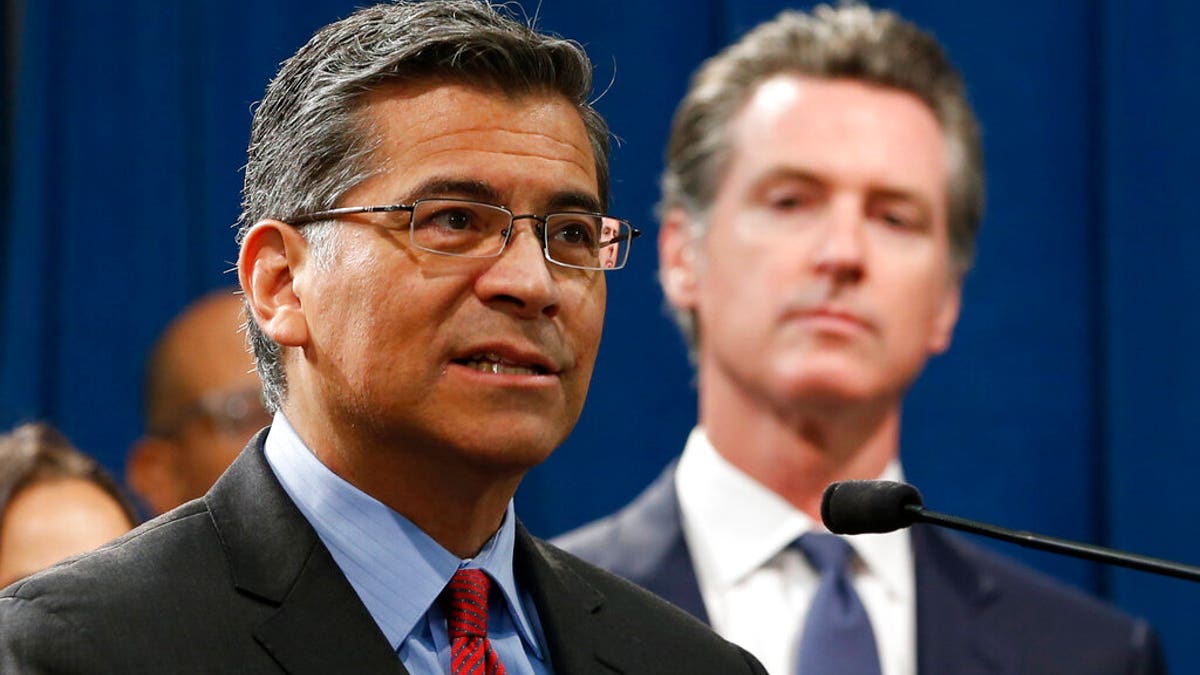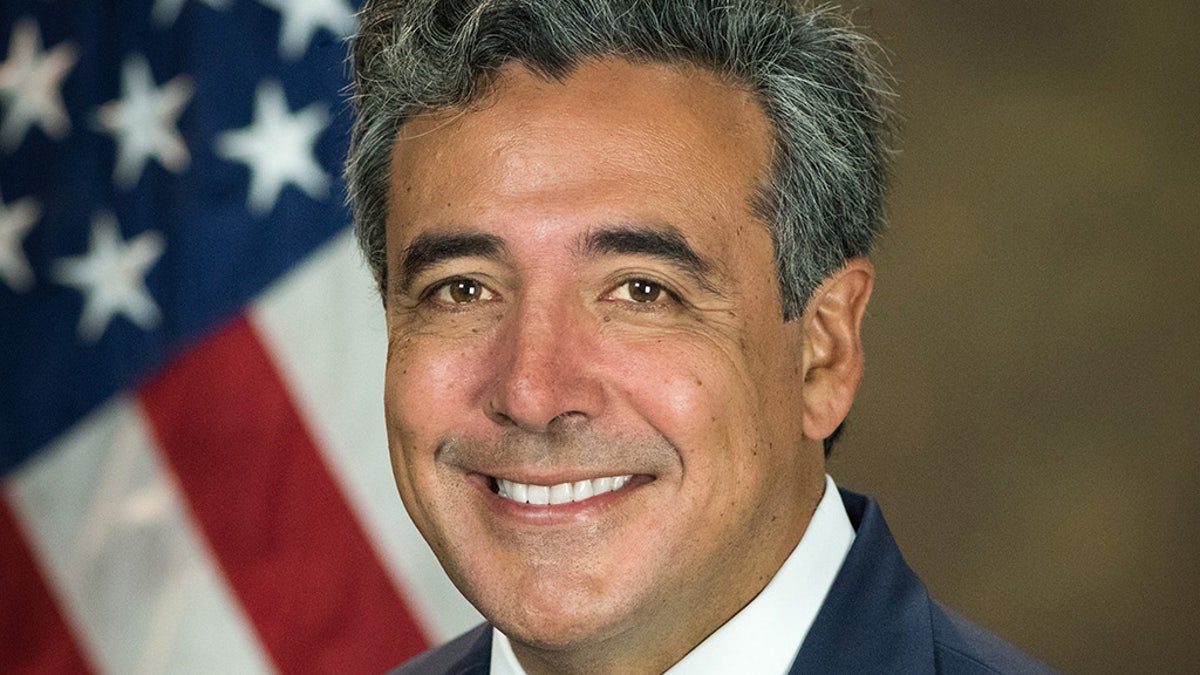Joe Biden says he looks forward to ending President Trump's 'senseless crusade against health coverage'
Raw video: Presumptive Democratic presidential nominee Joe Biden makes remarks at campaign event in Lancaster, Pennsylvania.
The Trump administration on Thursday night filed a brief in a highly charged Supreme Court case that has the potential to completely overturn the Affordable Care Act (ACA), also known as ObamaCare, in the third direct assault on the law that has come before the tribunal since it was enacted in 2010.
The case, California v. Texas, is brought by a group of red states arguing that because Congress eliminated the financial penalty associated with the individual mandate -- the provision in the ACA that requires all Americans to purchase health insurance -- it is no longer a valid exercise of the government's power to tax and therefore is unconstitutional.
The Supreme Court reading the mandate as a tax is what saved the law during a previous challenge, enraging conservatives who thought the Republican-appointed majority on the court would strike down the ACA.
FEDERAL APPEALS COURT STRIKES DOWN OBAMACARE RULE, SETTING UP SUPREME COURT SHOWDOWN
The red states further argue that the individual mandate is not "severable" from the rest of the law, meaning it was so instrumental to Congress' plan when it originally passed the legislation that the rest of the law also needs to be declared invalid if the Supreme Court rules the individual mandate is unconstitutional. The Trump administration in its brief supported that position.
Trump Admin Brief Californi... by Fox News on Scribd
"The individual mandate cannot be severed from the remainder of the ACA. Congressional findings incorporated into the ACA’s text clearly indicate that Congress would not have adopted the guaranteed-issue and community-rating provisions absent the individual mandate’s requirement to purchase insurance," the Trump administration argues.
It continues: "This Court recognized the interrelatedness of these three provisions in [two other cases]. And Congress’s 2017 amendment does not alter the severability analysis because it left intact the critical statutory findings about the interconnectedness of these provisions — findings that were and remain the functional equivalent of an inseverability clause."
The Supreme Court will hear this case during its next term, which is set to begin in October. That means by this time next year the ACA may no longer be the law of the land.
Blue state backing
Because the Trump administration has opted not to defend the ACA, which is traditionally what the federal government does when states challenge the constitutionality of a federal law, a group of blue states has stepped into the void to back it. That group is led by California Attorney General Xavier Becerra, who slammed the Trump administration for its late-night filing in a tweet early Friday morning.
"In the middle of a pandemic, the Trump Admin's fighting to destroy the #ACA. Tonight before #SCOTUS they showed how far they’re willing to go. Millions of people rely on the ACA. Our coalition of 20 states + DC intends to win this, #ProtectOurCare," he wrote.

California Attorney General Xavier Becerra, left, accompanied by Gov. Gavin Newsom. Becerra is the leader of a group of blue states' defense of the ACA against a lawsuit led by a coalition of red states. (Associated Press)
BIDEN TAKES AIM AT TRUMP OVER HEALTH CARE DURING BATTLEGROUND STATE STOP
This case is what presumptive Democratic presidential nominee Joe Biden and other Democrats are referencing when they say the Trump administration is trying to take away Americans' health care. In fact, Biden was attacking Trump for supporting the lawsuit at a campaign stop in Pennsylvania just hours before the federal government filed the brief.
"I think it’s cruel, it’s heartless, it’s callous,” Biden said of Trump’s attempts to dismantle ObamaCare. "It’s all because in my view he can’t abide the thought of letting stand one of President Obama’s great achievements."
And he vowed that “if Donald Trump refuses to end his senseless crusade against health coverage, I look forward to ending it for him."
Solicitor general departing
The Thursday brief is also one of the final acts by Solicitor General Noel Francisco, who has been the man arguing many Trump positions before the Supreme Court, before he officially leaves his post in early July. Francisco officially announced June 17 he would step down from his job, saying that "[r]epresenting the United States before the Supreme Court is one of the greatest jobs in the law and an opportunity for which I am deeply grateful."

Solicitor General Noel Francisco announced earlier this month that he is leaving the DOJ in early July. (DOJ/Official)
CLICK HERE TO GET THE FOX NEWS APP
Although ACA has twice before survived Supreme Court challenges, it is not inconceivable that the 5-4 conservative majority could rule against the law this time. The current challenge is on a different issue than the previous ones -- Congress has in the interim changed the ACA, specifically regarding the individual mandate's financial penalty -- and a federal appeals court held against the law in a ruling that led the coalition of blue states defending it to bring the case to the Supreme Court.
More specifically, the red states' challenge seems targeted at Chief Justice John Roberts, whose decision to read the individual mandate as a tax saved the law in NFIB v. Sebelius, the first major challenge to the ACA, much to the chagrin of conservatives. They are arguing that because there is no longer a financial penalty associated with the individual mandate, it is now impossible to read the provision as a tax.
"The contrary arguments advanced by the intervenor States and House lack merit," the Trump administration's brief reads. "Their contention that the mandate may still be viewed as the predicate to a tax of zero dollars is incorrect. Under NFIB’s functional approach, a statute that imposes no tax liability on anyone cannot be sustained as a tax."
Fox News' Paul Steinhauser and Madeleine Rivera contributed to this report.
























